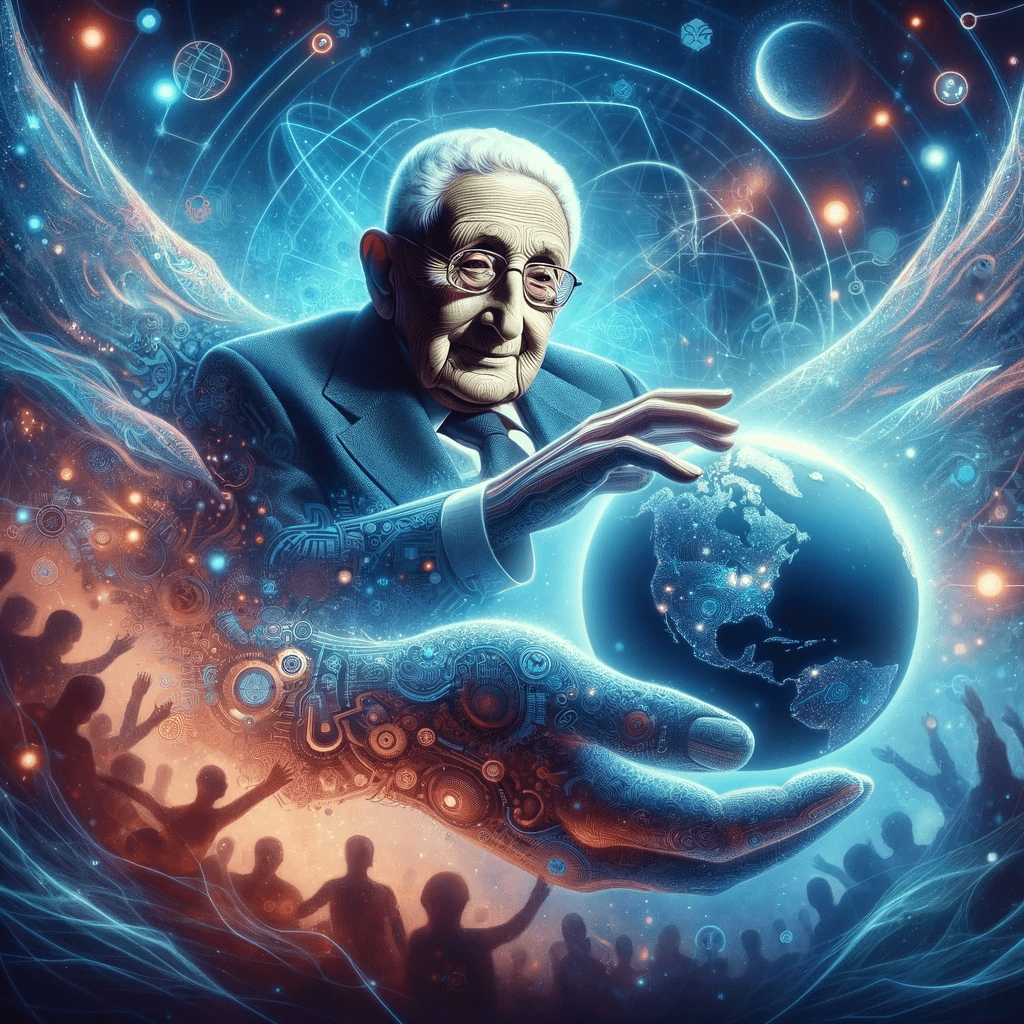Henry Kissinger

Henry Kissinger is a prominent figure in American political history, known primarily for his role as National Security Advisor and Secretary of State during the Nixon and Ford administrations. His diplomatic career is marked by significant events such as the opening of relations with the People’s Republic of China and the negotiation of the Paris Peace Accords, which helped end U.S. involvement in the Vietnam War. Kissinger’s policies and actions have been both lauded for their strategic acumen and criticized for their ethical implications, particularly in places like Cambodia, Chile, and Bangladesh.
Kissinger was born on May 27, 1923, in Fürth, Germany. He emigrated to the United States in 1938 to escape Nazi persecution. His academic career blossomed at Harvard, where he earned his bachelor’s, master’s, and doctoral degrees, later joining the faculty. His expertise in international relations and security studies gained the attention of political leaders, paving the way for his influential role in government.
Ronald Garner mentions Henry Kissinger in the context of his discussion on the secret group Majestic 12, suggesting Kissinger’s involvement with this clandestine group. Garner implies that Kissinger, like other members of Majestic 12, had his own one-bedroom apartment at the secretive S4 facility, indicating a deep level of involvement in projects related to extraterrestrial matters and secret government operations.
Garner also speculates about the possibility of Kissinger having undergone some form of genetic enhancement or treatment, a common practice within the secret government programs for extending life or enhancing capabilities, given Kissinger’s advanced age and continued activity in global affairs. This speculation is part of Garner’s broader narrative on the intersection of human elites with extraterrestrial technologies and beings, suggesting a hidden layer of influence and manipulation in world events.
Henry Kissinger, a prominent figure in American foreign policy, held key roles in multiple administrations, leaving an enduring impact on international relations and U.S. foreign policy. He served as National Security Adviser and Secretary of State under President Richard Nixon and later provided advisory support to Presidents Ronald Reagan and George W. Bush.
His strategies and policies during the Cold War era included the secret bombing campaigns in Cambodia, pioneering efforts to establish diplomatic relations with China, and negotiations to end the Vietnam War. These pivotal moments reflected his approach to foreign policy, often referred to as Realpolitik, which prioritized the pragmatic and strategic interests of the United States.
Kissinger’s influence extended beyond his official roles, as he continued to play a central role in shaping U.S. foreign policy through advisory positions and a vast network of global leaders. His close relationship with President Nixon was particularly noteworthy, as both shared a vision of using American power to shape global affairs amidst the complexities of the Cold War.
Kissinger’s engagement with Presidents Gerald Ford and Franklin D. Roosevelt sheds light on his influence across different administrations and the evolving dynamics of U.S. foreign policy. Under President Ford, he continued to serve as Secretary of State, contributing to crucial diplomatic efforts such as the Helsinki Accords in 1975, aimed at improving relations between the Communist bloc and the West. While he did not serve directly under President Roosevelt, Kissinger’s diplomatic career was influenced by the international system Roosevelt helped establish during World War II.
Henry Kissinger’s life span from May 27, 1923, to November 29, 2023, is quite remarkable and exceedingly rare based on historical mortality statistics. Born in 1923, a period when life expectancy was significantly lower than today, Kissinger surpassed the age of 100. To put this achievement into perspective, during that time, the chances of any individual, especially a male, reaching the age of 100 were exceptionally slim. With a typical estimate of 0.1% or less for someone born in 1923 to live to 100, the odds were remarkably low. In essence, Henry Kissinger’s longevity represents an extraordinary journey through a century filled with world-changing events, and his ability to achieve such a milestone is an exceptionally rare feat, defying the expectations of his era’s life expectancy statistics.
For every 1,000 men born in 1923, only 1 had the remarkable privilege of reaching the age of 100.
Henry Kissinger’s extensive career and multifaceted influence span a significant period of American history, reflecting both continuity and change in U.S. foreign policy from the mid-20th century into the post-Cold War era. His legacy continues to shape global affairs, making him a prominent figure in the realm of international diplomacy and foreign relations.


